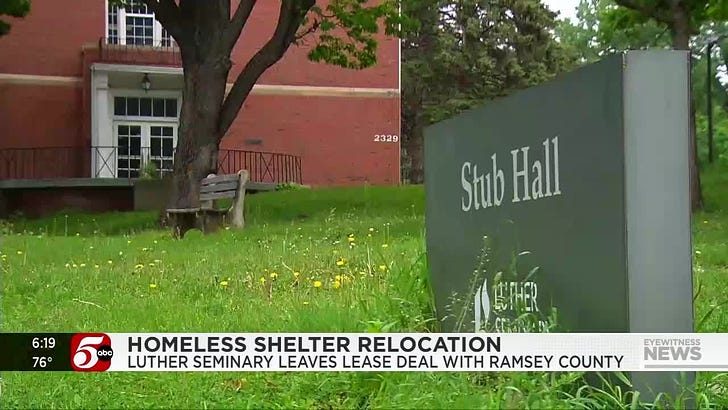
Discover more from Lutheran Confessions
So much depends upon the placement of hyphens. For example, sometimes when we use the term “atheism” we add one after the “a”: as in, a-theism.
Similarly for anarchism, it’s instructive to add the hyphen after “an”: as in, an-archism.
In both cases, by placing a hyphen in those locations we call attention to the prefix. Prefixes often do a lot of un-noticed work, and when we glide over the prefix and gloss the word as a whole, we sometimes drift from the root meaning of the word.
This is certainly true. “Atheism” without the hyphen is often caricatured in our culture. Either atheists are dismissed because they buck the trend of the dominant theist (and Christian) worldview of the culture. Or “atheism” becomes its own kind of self-righteous religion, as we see illustrated in the work of Richard Dawkins.
This kind of atheism has an agenda. It’s as proselytizing as any form of Christian, and shares the same kind of rigidity as fundamentalist forms of Christianity, just from the “atheist” position.1
Since I don’t personally experience most atheists as being of this “fashionable” sort, I’ve generally emphasized in my own thinking the “-” in a-theism in order to discover and discuss the real synergy between authentic Christianity and “a-theists.”
Most a-theists simply don't believe there is a “G-d” or they are so agnostic about the existence of such a “G-d” that they prefer to simply admit their a-theistic stance.
Coupled with this, most a-theists I know are still very much committed to (perhaps more than many Christians) a caring presence in the world, neighbor-love, a humanist and eco-friendly posture toward the world. This is why studies sometimes show children raised by atheists are generally actually more altruistic than those raised by Christians.
So… as a progressive Christian I end up resonating far more often with a-theists than other Christians, and this is for two reasons (so far as I can tell).
I’m also an a-theist, in the theological sense of that term, because orthodox Lutheran theology emphasizes God’s hiddenness, and the dangers of believing any of us can grasp “God.” G-d is always “God beyond God.” That’s an inherently a-theistic position.
A-theist and progressive Christian politics and economic and social commitments often align.
What I always want to emphasize in conversation with a-theists is something along the lines of: the god you don’t believe in is also the god I don’t believe in.
I guess I also typically wish Christians who have decided they are a-theist could find more resources for their a-theism within their Christian tradition rather than thinking those resources are absent.2
I also tend to make the argument (it’s one of my most common leitmotifs): abusus non tollit proprium usus (the abuse of something does not disallow its appropriate use). So basically, just because many Christians misuse Christianity doesn’t mean there isn’t a good and right use of it. Why let the abusers of something steal what you love from you?
The whole topic of (a)theism, a/theism, etc. can get rather complicated, and so I’ll leave that deeper theological discussion to a later time and in the hands of previous theologians, but if you’d like to start somewhere, consider Mark Taylor ????
Finally, it’s also very good to keep in mind that atheists in the U.S. are a beleaguered minority. As just one example, it’s against Arkansas state law (where I live) to serve in the state government if you are an atheist. That’s probably unconstitutional, but someone would have to swear in to the state house as an atheist to test it out, and thus far no one has. So atheists live under tremendous pressure to conform to the dominant Christianity around them.
—
As far an-archism, well, the normal use of that term is something like “letting all hell break loose.” Disorganization, chaos, etc. But in fact an-archism literally means “an-” (without) “-arche” (command, authority)—in other words, without an authority. So in comparison to a monarchy, which has one authority (the king), an-archy is a political term referring to a way of organizing without such authority or command.
There are many modern experiments with an-archist organization. There’s quite a lot of experimentation with this in community organizing, some of it highly effective (like #BlackLivesMatter). Also in the economic space there are experiments with Decentralized Autonomous Organizing (DAOs).
Progressive Christians live with at least some overlap to this way of thinking because they take seriously the inversion of the “kingdom of God” articulated by Jesus. Sometimes contemporary progressives like myself will use a hyphen to further indicate this, calling it the “kin-dom of God.” What’s a kingdom without a king? What’s a way of living in community together that doesn’t require people to be “over” one another? Is there a way for a community to be led by the community itself (think Society of Friends)?
This is Christian an-archism. Like Christian a-theism, rather than rejecting a way of thinking about politics widely rejected by the largest Christian group (most of whom seem to be Christian nationalists these days) Christian an-archists ask what it might mean that Jesus, who is the “head” of the church, called everyone “friends” and rejected the authority sometimes extended to him.
Consideration of this way of thinking politically allows for progressive communities to explore life together beyond the normal patron-client divide so typical in so much of culture. It allows for the move toward mutual aid, accompaniment, place-sharing, mutuality.
—
It’s been a lot of fun tapping out these 30 days of posts for A Guidebook To Progressive Church. Those of you who read the whole thing, I salute you. Thanks for coming on the journey. Watch for a Table of Contents published later this week with links to all 30 posts. Then in December I plan to slow down the pace considerably and take a little break to enjoy the Advent season! So Advent blessings to all of you!
For those who’d like to read the best “take-down” of this kind of evangelical atheism, I recommend Atheist Delusions: The Christian Revolution and It’s Fashionable Enemies by David Bentley Hart.
As just one example of this kind of resource, see Peter Rollins https://peterrollins.com/atheism-for-lent
Subscribe to Lutheran Confessions
Reflections from a progressive Lutheran pastor in the South.





About 50 years ago, Jacques Ellul wrote a brilliant essay on Christian anarchism, published in Katallagate.
The fool has said in his heart there is no God. The heart is the seat of faith emotion. The soul( brain?) is the seat of knowledge. All are endowed with a natural knowledge of God. All power is given unto me in heaven and on earth. God is energy if one joule of energy is not God then he is a liar. On the other hand if God is energy then laws of science should verify Him. The first law of thermodynamics states that energy cannot be created or destroyed. This testifies to God’s eternal nature. It also accounts for God’s unchangeableness. E=mc2 proves God’s omnipresent. nature.